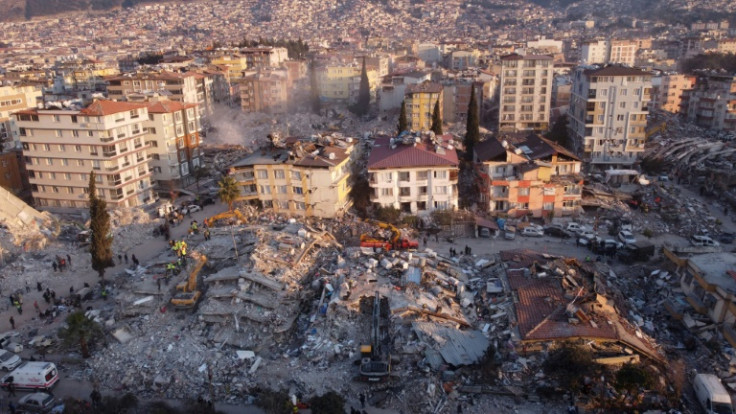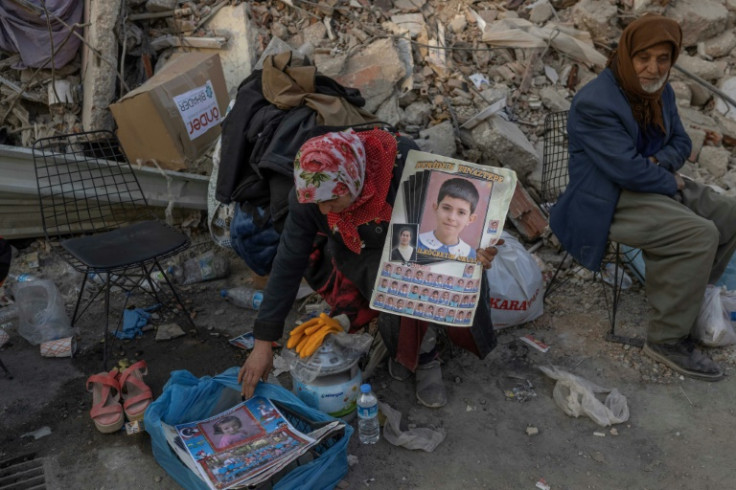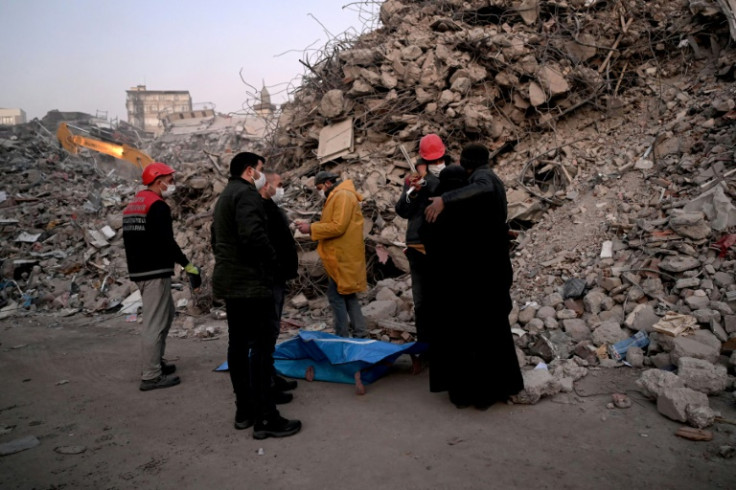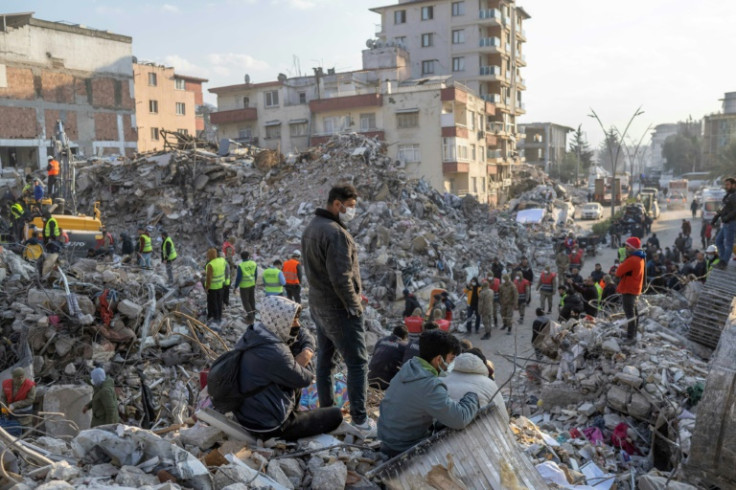Turkey-Syria Quake Toll Rises Above 35,000

The toll from last week's earthquake in Turkey and Syria rose above 35,000 on Monday, as rescue teams started to wind down the search for survivors and the aid effort shifted to hundreds of thousands of people made homeless.
Eight days after the 7.8-magnitude tremor, Turkish media reported a handful of people were still being pulled from the rubble as excavators dug through ruined cities.
The confirmed death toll rose to 35,224 as officials and medics said 31,643 people had died in Turkey and 3,581 in Syria after the February 6 earthquake, the fifth deadliest since the start of the 21st century.
The United Nations has decried the failure to ship desperately needed aid to war-torn regions of Syria and warned that the toll is set to rise even higher as experts caution that hopes for finding people alive dim with each passing day.
"Send any stuff you can because there are millions of people here and they all need to be fed," Turkish Interior Minister Suleyman Soylu appealed to Turks late Sunday.
In Kahramanmaras, close to the epicentre, 30,000 tents have been installed, 48,000 people are sheltering in schools and another 11,500 in sports halls, he said.
While hundreds of rescue teams were still working, efforts had ended in seven parts of the province, he added.
In Antakya, clean-up teams started to evacuate rubble and erect basic toilets as the telephone network started to come back in parts of the town, an AFP reporter said.
The city was patrolled by a strong police and military presence which authorities deployed to prevent looting following several incidents over the weekend.
Turkish Vice President Fuat Oktay late Sunday said 108,000 buildings were damaged across the quake-hit zone with 1.2 million people being housed in student accommodation and 400,000 people evacuated from the affected region.
Aid packages, mainly clothes, were opened and spread across the streets in Hatay province, according to NTV. One video showed aid workers throwing clothes randomly into a crowd as people tried to grab whatever they could.
A convoy with supplies for northwest Syria arrived via Turkey, but the UN's relief chief Martin Griffiths said more was needed for millions whose homes were destroyed.
"We have so far failed the people in northwest Syria. They rightly feel abandoned. Looking for international help that hasn't arrived," Griffiths said on Twitter.
In many areas, rescue teams said they lacked sensors and advanced equipment, leaving them reduced to carefully searching the rubble with shovels or only their hands.
"If we had this kind of equipment, we would have saved hundreds of lives, if not more," said Alaa Moubarak, head of civil defence in Jableh, northwest Syria.
Supplies have been slow to arrive in Syria, where years of conflict have ravaged the healthcare system, and parts of the country remain under the control of rebels battling the government of President Bashar al-Assad, which is under Western sanctions.
But a 10-truck UN convoy crossed into northwest Syria via the Bab al-Hawa border crossing, according to an AFP correspondent, carrying shelter kits, plastic sheeting, rope, blankets, mattresses and carpets.
Bab al-Hawa is the only point for international aid to reach people in rebel-held areas of Syria after nearly 12 years of civil war, after other crossings were closed under pressure from China and Russia.
The head of the World Health Organization met Assad in Damascus on Sunday and said the Syrian leader had voiced readiness for more border crossings to help bring aid into the rebel-held northwest.
"He was open to considering additional cross-border access points for this emergency," WHO chief Tedros Adhanom Ghebreyesus told reporters.
"The compounding crises of conflict, Covid, cholera, economic decline and now the earthquake have taken an unbearable toll," Tedros said a day after visiting Aleppo.
While Damascus had given the all-clear for aid convoys to go ahead from government areas, Tedros said the WHO was still waiting for a green light from rebel-held areas before going in.
Assad looked forward to further "efficient cooperation" with the UN agency to improve the shortage in supplies, equipment and medicines, his presidency said.
He had also thanked the United Arab Emirates for providing "huge relief and humanitarian aid", with pledges of tens of millions of dollars.
Three people were put behind bars by Sunday and seven more have been detained -- including two developers who were trying to cross into the neighbouring ex-Soviet Georgia.



© Copyright AFP 2025. All rights reserved.





















